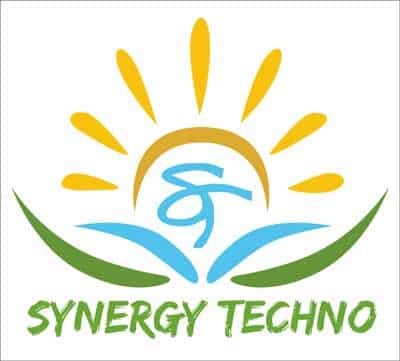
In today’s rapidly industrializing world, hazardous waste management has become a crucial aspect of environmental protection and public safety. Hazardous waste collection and disposal service is not just about removing toxic materials but ensuring that such waste is handled, treated, and disposed of in a manner compliant with stringent regulations. Whether it’s chemical waste from manufacturing units, biomedical waste from hospitals, or e-waste from IT industries, the role of professional hazardous waste management is indispensable.
Understanding Hazardous Waste and Its Types
Before diving deep into the significance of hazardous waste disposal, it is essential to understand what qualifies as hazardous waste. According to environmental laws, hazardous waste is any material that poses a substantial or potential threat to public health or the environment due to its toxic, reactive, ignitable, corrosive, or infectious nature.
Here are some common types of hazardous waste:- Chemical Waste: Includes acids, solvents, pesticides, and industrial chemicals that are flammable, toxic, or reactive.
- Biomedical Waste: Generated by healthcare facilities, including used syringes, contaminated materials, and pharmaceuticals.
- Electronic Waste (E-Waste): Discarded electronic devices like batteries, computers, and mobile phones contain harmful substances like lead and mercury.
- Industrial Waste: Sludges, by-products, and residues from factories, which may contain heavy metals, oils, and hazardous chemicals.
- Radioactive Waste: Materials from nuclear plants or research labs emitting harmful radiation. Managing Spent Solvents, Spent Carbon, PAINT Sludge, Discarded Drums, Evaporation Residues, Process Recudies, Contaminated Empty Drums, Waste Oil / Used Oil, Expired Chemical, Ewaste Recycling.
Regulatory Compliance in Hazardous Waste Disposal
Regulations governing hazardous waste management are stringent, and rightly so, given the dangers involved. Businesses and industries generating hazardous waste must comply with local, national, and international regulations. In India, for instance, the Hazardous and Other Wastes (Management and Transboundary Movement) Rules, 2016, govern the handling, transportation, and disposal of hazardous waste. Professional hazardous waste management is well-versed in these regulations. They ensure:
- Safe packaging and labeling of hazardous materials.
- Proper documentation and tracking (manifest system) of hazardous waste from origin to disposal.
- Utilization of certified treatment, storage, and disposal facilities (TSDFs).
- Compliance with environmental impact assessments and disposal protocols.
Failure to comply with these regulations can lead to heavy penalties, legal action, and severe environmental consequences. Hence, relying on certified hazardous waste management companies is not just a choice but a necessity.
Environmental Impact of Improper Hazardous Waste Disposal
Improper disposal of hazardous waste can lead to catastrophic environmental and health consequences. Toxic substances can seep into the soil, contaminating groundwater and agricultural fields, thereby impacting food safety.
Some of the most severe environmental impacts include:- Water Pollution: Hazardous chemicals entering water bodies affect aquatic life and contaminate drinking water sources.
- Soil Contamination: Toxic waste alters soil composition, rendering it infertile and unfit for agriculture.
- Bio-remediation: It is an eco-friendly process that uses natural microorganisms to break down and remove hazardous contaminants from soil, water, and industrial waste. This sustainable method helps restore polluted environments by accelerating the natural degradation of harmful substances, ensuring safe and effective waste management.
- Air Pollution: Improper incineration of waste releases toxic fumes and greenhouse gases, contributing to air pollution and climate change.
- Harm to Wildlife: Animals ingesting or coming into contact with hazardous waste suffer from poisoning, deformities, or death.
Industry Insights: Growing Need for Professional Hazardous Waste Services
With the growth of industrial sectors like pharmaceuticals, chemicals, healthcare, and electronics, the generation of hazardous waste is on a steep rise. Industries are under increasing pressure to manage their waste in an eco-friendly and legally compliant manner.
Some key insights and trends in the hazardous waste management industry include:- Rising Demand for Professional Services: Companies prefer outsourcing hazardous waste management to specialized firms that guarantee safety and compliance.
- Innovation in Waste Treatment Technologies: Use of advanced methods like thermal treatment, chemical neutralization, bioremediation, and secure landfilling.
- Focus on Sustainability: Many service providers are adopting recycling and waste-to-energy solutions to minimize landfill dependency.
- Stringent Environmental Norms: Governments worldwide are tightening norms, making professional hazardous waste collection and disposal services crucial for businesses.
- Data-Driven Waste Tracking: Implementation of digital waste tracking systems to ensure transparency and accountability in hazardous waste handling.
Why Hiring a Professional Hazardous Waste Collection and Disposal Service is Essential
Managing hazardous waste is not a DIY task. Here's why companies should partner with professionals:- Safety Assurance: Expert teams are trained in handling dangerous materials safely, reducing the risk of exposure or accidents.
- Regulatory Compliance: Professional services stay updated with the latest waste management laws, ensuring clients avoid legal troubles.
- Cost-Effective Solutions: Though an upfront cost, professional services prevent expensive penalties and cleanup costs due to improper disposal.
- Environmentally Friendly: Use of certified disposal methods like incineration, recycling, or secured landfills ensures minimal environmental harm.
- Documentation and Reports: Detailed reporting and compliance documents are provided for audit and regulatory purposes.
Some of our Key Achievements
Wastewater Reduction: Achieve 25-30% savings in wastewater generation, leading to a significant reduction in treatment costs.
Power Efficiency: Save 20-25% on power consumption through optimized processes.
Hazardous Waste Disposal Savings: Reduce annual hazardous waste disposal costs by 30-40% with efficient waste management.
Procurement Savings: Cut 25-30% of costs through smart procurement of raw materials and chemicals.
Overhead Cost Reduction: Lower overhead expenses by 15-25% using a cost-efficient approach.
By-Product Monetization: Recover 40-50% of total overhead costs through by-product sales.
Extended Sales Support: We assist industries in monetizing spent materials and by-products, maximizing their value.
Conclusion
In conclusion, hazardous waste collection and disposal service is a critical component of modern industrial operations. It ensures that hazardous materials are managed in compliance with environmental laws, safeguarding both human health and the planet. Given the complex nature of hazardous waste and the serious risks involved, businesses must prioritize professional and certified waste management services.


6 Responses